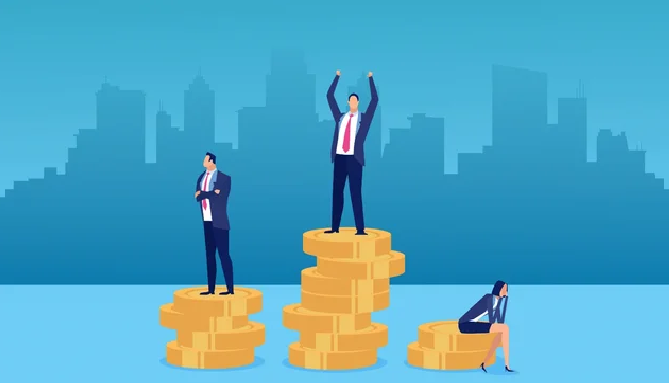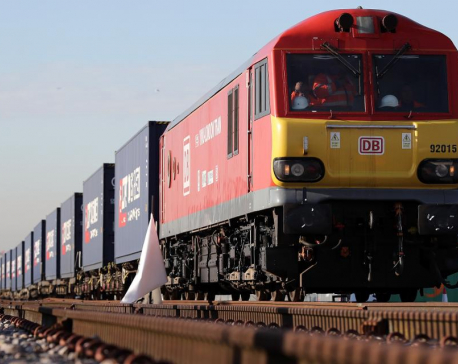
OR
Opinion


Sumit Pathak
(The writer is an Education Management Consultant at Islington College.)news@myrepublica.com
The most comprehensive research done on the topic of inequality shows that in the year 1820, the average income of the global top 10 percent was 18 times higher than the bottom 50 percent while that number skyrocketed 38 times in the year 2020. The primary driver of this income disparity is financial deregulation, lack of unions, poor safety nets and the growth in executive pay and bonuses that far outstrips the salary growth of average blue and white collar workers.
The pandemonium surrounding the Russian invasion of the sovereign state of Ukraine seems to lack a coherent response from the global community. One crowd is firmly depicting Russian President Vladimir Putin as a monster while the other crowd seems to put the onus on the United States and its western allies for having a policy of appeasement and demagoguery to suit their needs. Both these factions are correct in their tangential evaluation but the epicenter of this crisis has its roots in our economic system that consistently puts power in the hands of a few while marginalizing the rest. Global inequality which has exacerbated in the last 30 years has created oligarchs who are not only richer than countries but collectively powerful than most sovereign democratic states and until and unless we find a way to dissipate this concentration of wealth and power from a “chosen” few, the situation the world is currently in will only get worse.
The most comprehensive research done on the topic of inequality shows that in the year 1820, the average income of the global top 10 percent was 18 times higher than the bottom 50 percent while that number skyrocketed 38 times in the year 2020. The primary driver of this income disparity is financial deregulation, lack of unions, poor safety nets and the growth in executive pay and bonuses that far outstrips the salary growth of average blue and white collar workers. The situation is even dire in the developing world where the size of the middle class has been shrinking. Take a look at the salary of a CEO at a commercial bank in the developing world and compare it with the income of an associate. I am sure that the CEO is adding tremendous value to the organization but do we really want to live in a society where a person is making 30 to 50 times more while working at the same institution?
Secondly, income inequality gives rise to wealth inequality. For average middle-class citizens, the primary determinant of wealth is their house but for the rich it is their multiple investment in stocks and bonds and other financial derivatives. The return on investment in these classes of financial instruments is significantly higher. Moreover, the top 10 percent predominantly give their wealth to their immediate relatives and the inheritance tax is dismally low if not nonexistent throughout the world or people will find legal loopholes to keep the wealth within the family. These phenomena help to keep the “world’s power” center of gravity to a limited circle. Yes, it is true that there are anomalies and we hear the story of “rags to riches”, but these outliers are generally assimilated by the established “sharks” perpetuating the cycle of income and power concentration. For example, whenever a new startup gains some traction, it is usually bought by the established market players within the industry, limiting competition.
All of this is not to malign success and risk taking. Free market capitalism does allow grounds for ingenuity and hard work to thrive but the success partly depends on luck, network, location and initial funding. The fact that only five percent of startups exist in the market after five years of inception tells that the free market is not entirely free. Also, let it be clear that most average citizens do not hold animosity toward the financially successful people. They just want a decent life for themselves and their kids where they are not one accident away from bankruptcy. At the same time, it can be argued that success does not happen in a vacuum. Successful people and companies are using resources of society - both human and physical. As such, it should not be an anathema for the successful to give back to the community to level the playing field.
Now, the relation between the current chaos and the inequality: wealth and power in the mature, developed and democratic economies reside with the corporations, banks and technological giants while in the developing world the same power is in the hand of autocratic leaders. Most of these autocratic leaders are sitting on a lot of natural resources and human capital that the developed world needs. Given this, politicians who are funded by the corporations in the developed world are willing to turn a blind eye to the atrocities perpetrated by these oppressive leaders throughout the world and will only do lip service when a situation unfolds as it is currently unfolding. The world economy needs Russian, Saudi and Venezuelan oil along with minerals from a host of other African countries. It is very difficult to oust leaders from these countries when you regularly do business with them.
Furthermore, one country that has considerable clout in 21st century global affairs is China, but it has time and again deferred the leadership role. Market capitalism has helped propel the Chinese economy to a new height but the same problem of inequality that has plagued western economies has started to grow roots in Chinese society as well. There is a vast segment of the Chinese population who has been left out from the economic boom and globalization. Increasingly, wealth and power concentration in China is with technological companies and state-owned enterprises run by people with considerable connection with the communist party. This has given rise to a new generation of oligarchs who have the ears of the leading members of the politburo. Not surprisingly, these oligarchs have deep connections with their counterparts in the developed as well as the developing world.
However, if we redistribute wealth in the developed economies through progressive taxation and other economic instrument and break giant corporation and financial institution while enacting stricter labor laws and enlarge the safety net, then we might have a large middle class in the developed world which might have a significant sway in determining the geopolitics of the planet. In a nutshell, the power to cause progressive and quantifiable change, in essence, exists in the hands of middle class citizens of the developed world. These empowered middle class citizens can help their counterparts in the developing world to induce lasting political and economic change. This might sound far-fetched but in a globalized and integrated world, one significant event can lead to a chain reaction that can upend the current world order and if humanity is to exist in harmony with each other then this is not only desirable but necessary.
You May Like This

Empowered workers enhancing economy
Om Thapaliya, 55, is the Executive Director at Homenet Nepal (HNN), a member-based organization that works with vision to improve... Read More...

The COVID bubble
With equity markets reaching new heights at a time of rising income and wealth inequality, it should be obvious that... Read More...

BRI after COVID-19
Since the outbreak of COVID-19 in late December 2019 in Wuhan, China, experts have speculated what its long-term effects on... Read More...





Just In
- MoHP cautions docs working in govt hospitals not to work in private ones
- Over 400,000 tourists visited Mustang by road last year
- 19 hydropower projects to be showcased at investment summit
- Global oil and gold prices surge as Israel retaliates against Iran
- Sajha Yatayat cancels CEO appointment process for lack of candidates
- Govt padlocks Nepal Scouts’ property illegally occupied by NC lawmaker Deepak Khadka
- FWEAN meets with President Paudel to solicit support for women entrepreneurship
- Koshi provincial assembly passes resolution motion calling for special session by majority votes






_20220508065243.jpg)






Leave A Comment